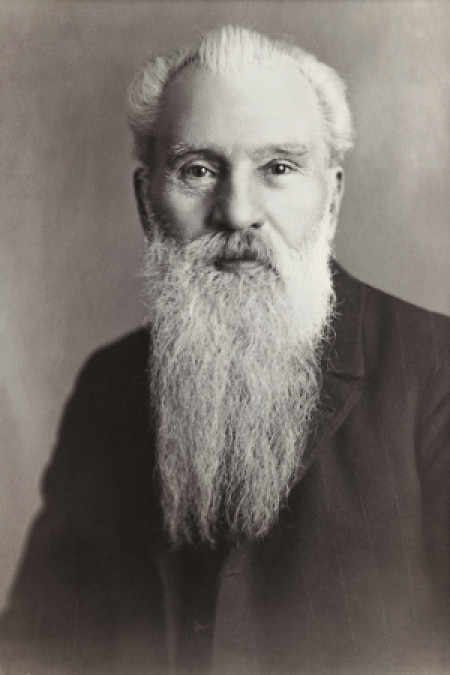
1 January 1853, Waldeck – 23 May 1926, Ansbach
Composer and instructor. He studied at the München Music College between 1874 and 1877, with Professors Rheinberger and Wüllner. From 1877, he taught music theory and choir conducting at the Dresden Conservatory. From 1879, he was choir conductor of the Liedertafel in Dresden, then conductor of the Theatre of Köln.
He moved to Budapest in 1882, and at Franz Liszt’s recommendation, he started teaching organ at the Liszt Academy. From 1883 he also taught there composition, after Robert Volkmann's death. Although he retired in 1908, he was called back in 1920 and taught composition again, for five more years. The following is written in the yearbook of 1919/1920: “The renowned professor took over the highest leadership of the composition studies at the beginning of this academic year, teaching excellent students of his – and in some cases, applicants from outside the Academy – who have completed their studies on all levels of the composition programme with the required results.”
He educated a whole generation of organ players and composers; among his students were: Béla Bartók Zoltán, Kodály, Ernő Dohnányi, Imre Kálmán, Albert Szirmai, Leó Weiner. Famous organ players: Dezső Antalffy Zsíross, János Hammerschlag, Aladár Zalánfy. He regularly performed, conducting Liszt works and Hungarian choral music.
Béla Bartók’s mother writes of his entrance examination: “We went to Pest in January 1988 to see Professor Thomán, who was very pleased with his playing... then he asked Professor Koessler to look at his compositions, commending him. He performed everywhere with splendind results.”
Koessler, who taught in his mother tongue, German, often visited his fatherland, Germany, and he permanently moved to Ansbach in 1925. As a composer, he was influenced by Brahms and late German romanticism. He composed two symphonies, violin concertos, cello concertos, chamber music, choral pieces and songs. He also composed one opera: Der Münzenfranz (1902).
Author and music critic Géza Csáth writes of Koessler’s significance as follows: “He appreciated and respected all of his students. He did not force his beliefs on them and did not put any obstacles in front of their imagination in the name of education…never before lived a music pedagogists who educated so many excellent students as Hans von Koessler did... Jadassohn, the great composer-educator of the last century, managed to produce only one talent of a great scale, and that is Grieg. It has been a long time since someone from the music academies of Vienna and Prague could express something truly new. And yet Hans von Koessler raised Dohnányi, Buttykay, Bartók, Kodály, Vándor-Weiner, Dezső Antalffy-Zsíross… His students were also Albert Siklós, who stood out as a theoretitian, Ernő Lányi, who reformed the men’s choir, Imre Kálmán, Albert Szirmai and Viktor Jacobi, who put a surprising twist on operettas, songs and chansons…let us state the fact that, inconspicuously but definitely, Hungarian art music has been established. This is sufficient for regarding Koessler as one of those who have done the most for our culture.”
The following is written of him at the time of his retirement: His time as an active teacher concurs with the unfolding of our national music, and he is undoubtedly among the great masters who purposefully guided the development of our national culture and strove to elevate it to a higher standard. Koessler arrived not long after regular operation had commenced at the Liszt Academy, and soon enough he overtook as leader of the new generation of composers. His students idolized him, and though even he could not award them talent, everybody who studied with him truly mastered the way of composing, acquired solid basic knowledge and sense of direction, as well as inherited from him honest enthusiasm and true passion for their art.”
(Mária Csanda)


